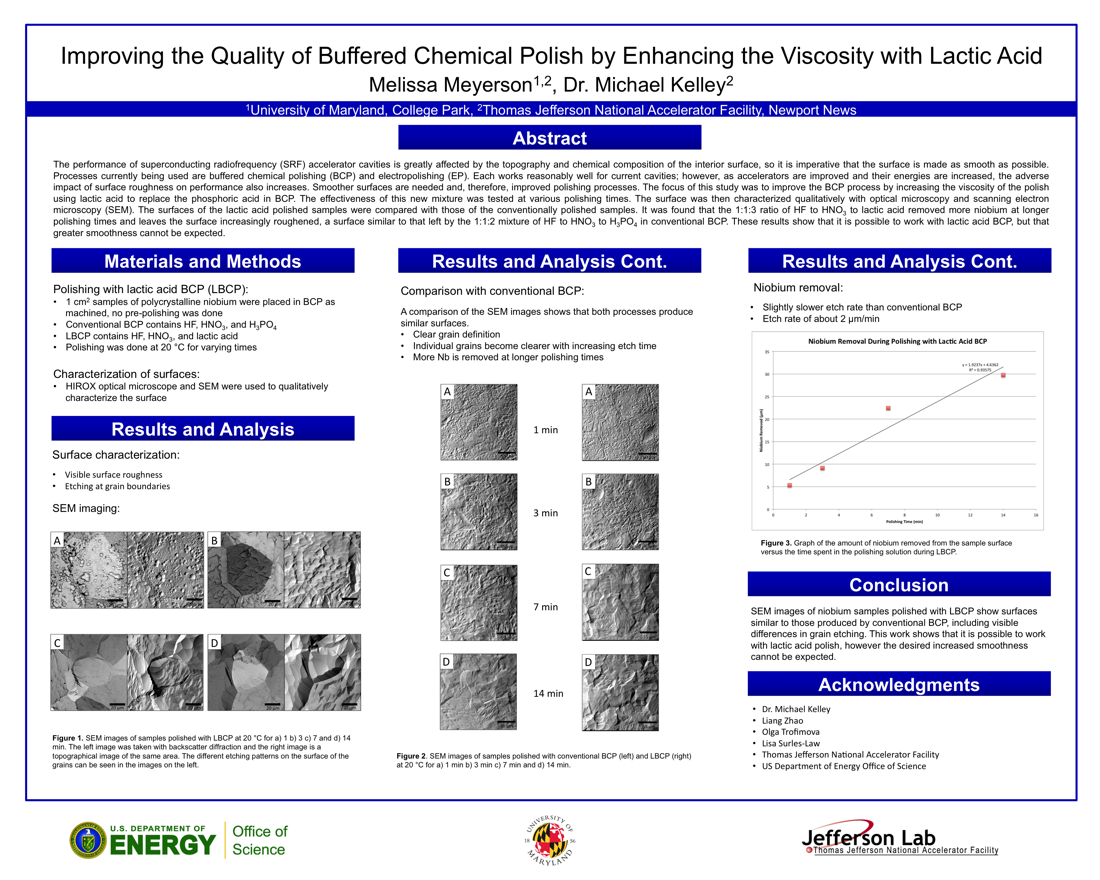Undergraduate Research at Jefferson Lab
Improving the Quality of Buffered Chemical Polishing by Enhancing the Viscosity with Lactic Acid
Student: Melissa Meyerson
School: University of Maryland
Mentored By: Michael Kelley
The performance of superconducting radiofrequency (SRF) accelerator cavities is greatly affected by the topography and chemical composition of the interior surface, so a smooth surface is imperative. Current processes, including buffered chemical polishing (BCP) and electropolishing (EP), work reasonably well for current cavities; however, as the energies of accelerators are increased, the adverse impact of surface roughness on performance also increases. Smoother surfaces are needed and, therefore, improved polishing processes. The focus of this study was to improve the BCP process by increasing the viscosity of the polish using lactic acid to replace the phosphoric acid in BCP. A comparison of surfaces polished with lactic acid BCP (LBCP) and conventional BCP revealed that LBCP removed more niobium at longer polishing times and left the surface increasingly roughened, similar to conventional BCP. These results show that it is possible to work with lactic acid BCP, but greater smoothness cannot be expected.

Citation and linking information
For questions about this page, please contact Steve Gagnon.
